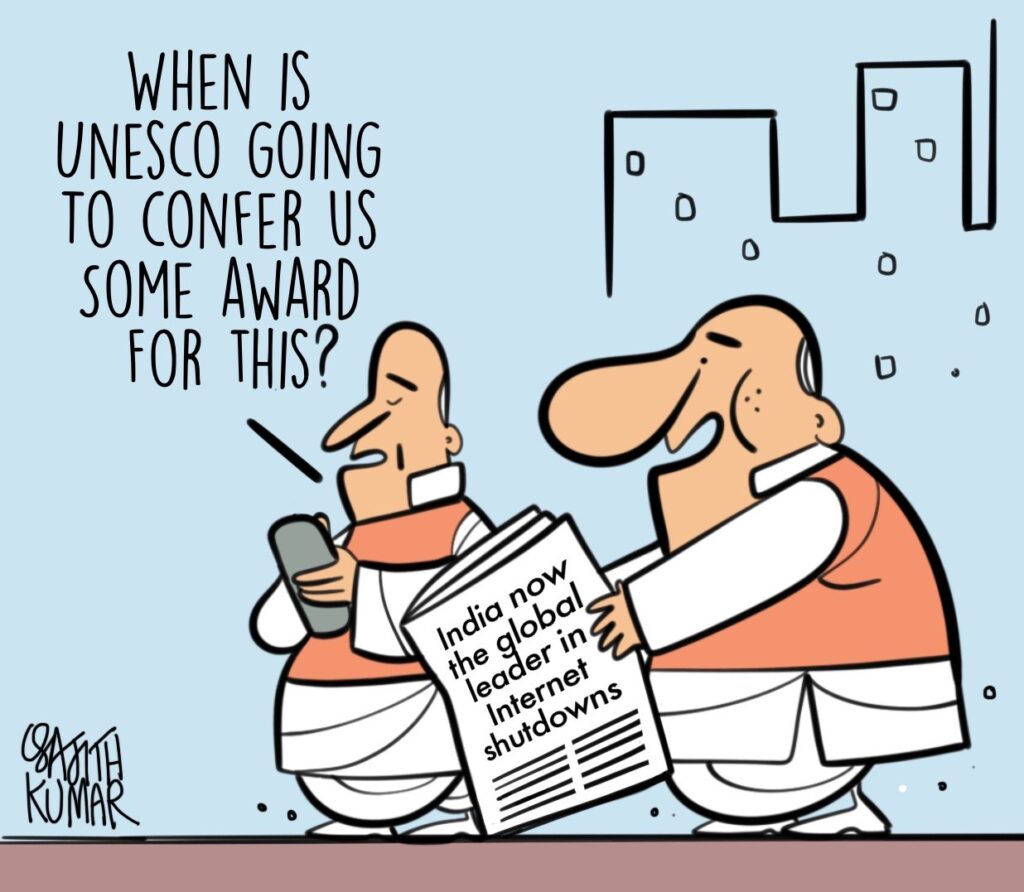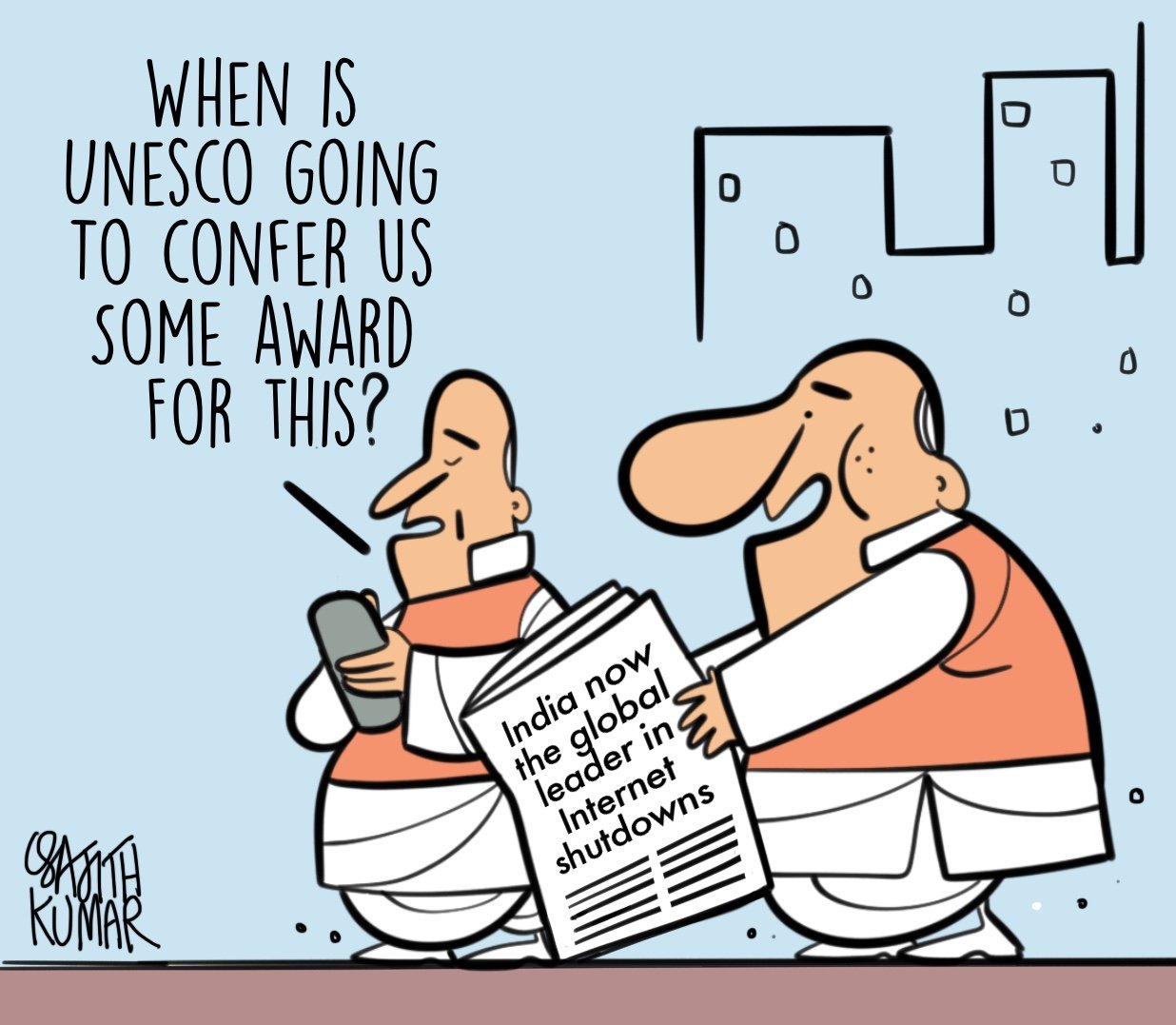Monitoring Shutdowns – Saharanpur, UP (May 29, 2023) #1

In this series, I am monitoring ongoing shutdowns, by examining the legality of shutdown orders. I started this series from May 16th, 2023. Note that internet services in Manipur have been suspended from even before that date (its been a month now). Thus, I am not examining what is happening in Manipur . The Internet Freedom Foundation has written extensively on what is transpiring there and it seems, the shutdown has also been challenged in the Supreme Court.
In this post, I will examine the suspension of internet services in Saharanpur, Uttar Pradesh. As I mentioned in the introductory post, a lot of my analysis will simply be ‘I do not know’ and that is true here as well, as we shall see. However, I believe, it is still important to document how often internet is suspended in India and the reasons behind them.
Background: The internet was suspended on May 29th, 2023 at 4 PM, and it continued till at least, 4 PM on May 30th, 2023. According to reporting by IndianExpress, the internet was suspended after tensions emerged between the Rajput and the Gurjar communities. The tensions emerged after members of the Gurjar community took out a ‘Gaurav Yatra’ in honour of nineteeth-centry ruler Mihir Bhoj, despite prohibitory orders against Yatra. The Rajput community claimed that the king belonged to their caste and the Gurjar community could not have taken out a Yatra in his honour. The Gurjar community clearly disagreed and asserted that the king belonged to their caste. In response, the Rajput community took the streets and staged a blockade. While 40 individuals were detained, I could not find any reports of violence.
Based on the information available in the public domain, let us now examine whether internet was suspended in accordance with law.
Procedural Compliance
- Did the concerned government publish the suspension order?
I could not locate a copy of the suspension order either on the website of Uttar Pradesh Home Department or the official website of District Saharanpur. Recall that as per Anuradha Bhasin v. Union of India, internet shutdown orders must be published. Although, the decision did not prescribe the mode of publication and it could be that the order was published in a local newspaper.
- Whether the order was issued under Section 5(2) of the Telegraph Act, 1885 read with Temporary Suspension of Telecom Services (Public Emergency or Public Safety) Rules, 2017?
According to reporting by IndianExpress, the internet was suspended by the District Magistrate. This suggests that the order would have have been issued under Section 144 of the Code of Criminal Procedure, 1973. Note that Section 144 is a general law which empowers magistrates to issue a wide-range of directions to prevent danger to human life or disturbance of public tranquility. Section 5(2) of the Telegraph Act and the 2017 Rules is a specific law. The judgment in Anuradha Bhasin (See paragraph 83), suggests (almost!) that states suspension orders should not be issued under Section 144, in view of the 2017 Rules.
- Was the order was issued by the Home Secretary?
The order was issued by the District Magistrate.
- If the answer to 3 is no, was it issued by an officer authorised by the Home Secretary?
Not applicable.
- If the answer to 4 is yes, has the order been confirmed by the Home Secretary within 24 hours?
Not applicable.
- Was the order placed before a review committee by the next working day?
Not applicable as the order was not issued under Section 5(2) r/w the 2017 Rules. And this is precisely the problem of suspending internet services using Section 144. Not only this vastly expands the circumstances under which internet may be suspended [compare 5(2) and 144], it also prevents any review of the order.
- Did the review committee examine the order within 5 working days from the date of the order?
Not applicable.
Substantive Compliance
- Does the order contain reasons justifying suspension of internet services?
I could not locate a copy of the order.
- Whether there was a public emergency or an interest of public safety, as noted in order, justifying the issuance of the order?
While a copy of the order is not available, it is doubtful if the situation in Saharanpur constituted a ‘public emergency’ or presented a threat to ‘public safety’. Reports do suggest that there were tensions amongst the communities but that is at best, a law and order concern. The flipside is that if internet was not shutdown, misinformation/disinformation could have spread easily, aggravating the situation.
- Was it necessary or expedient to issue the order in the interests of the sovereignty and integrity of India, the security of the State, friendly relations with foreign states or public order or for preventing incitement to the commission of an offence?
Again we need the order to do this analysis. We can presume that the order was issued in the interest of public order or for preventing incitement to the commission of an offence.
- Does the order adhere to the test of proportionality?
- Does it have a legitimate purpose?
The 144 order did have a legitimate purpose of preventing incitement to the commission of an offence (presumably).
- Is suspension of internet services rationally connected to fulfillment of that purpose?
I have not yet come across any research which would demonstrate that suspension of internet services addresses law and order concerns. As much sense as that makes intuitively, it not possible to determine in the hindsight if situation is Saharanpur would have been better or worse if internet was not suspended. But for the purposes of at least this stage of the analysis, perhaps there was at least a ‘rational connection’ between the suspension and preventing incitement to the commission of an offence.
- Are there alternative measures, apart from suspending internet services, which the government could have undertaken to achieve that purpose?
Here, it is important to note that the administration was aware that the Gurjar community intended to take out the ‘Gaurav Yatra’. Further, they were also aware that the Rajput community had previously objected to Gurjar communities alleged appropriation of the 19th century, ruler. Thus, the administration should have prepared better to respond to the situation rather than suspending internet-services as a knee-jerk reaction. Moreover, the internet was not suspended only in those areas where situation was tense but in the entire district.

1 Response